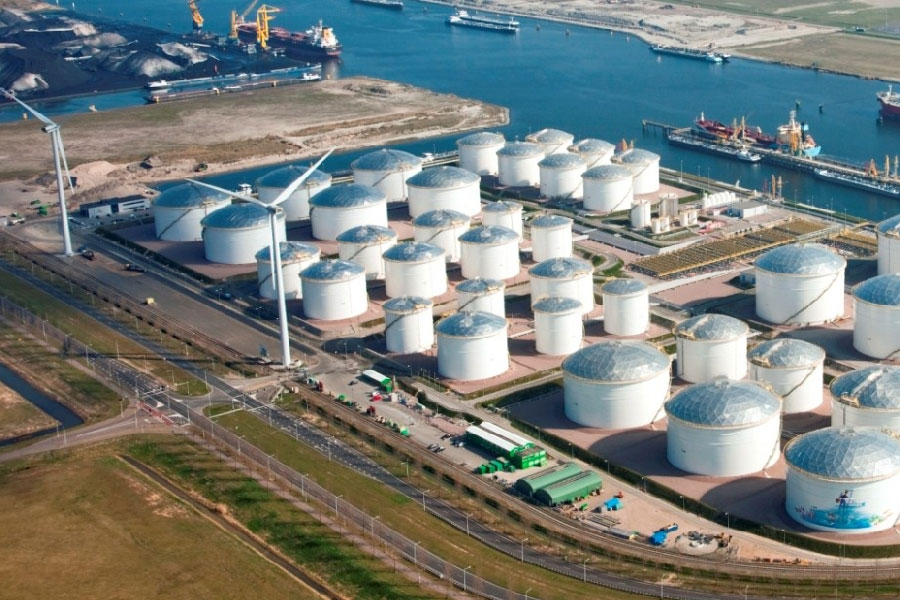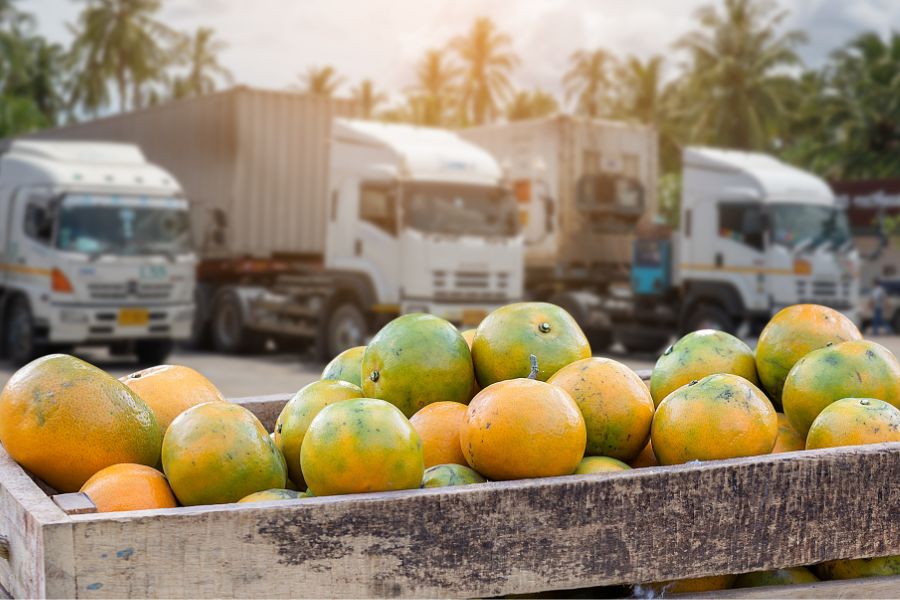Chemical logistics chain lucrative for new players
Mukesh Parikh, Adjunct Professor, Adani Institute of Infrastructure Management, believes that with favourable policies like implementation of ease of doing business norms and development of coastal PCPIRs, private investment in the Indian chemical industry as well as the bulk liquid storage and logistics services is expected to increase.

Image Credit: https://bit.ly/3gRF2zw
IBT: What is your outlook on the Indian bulk liquid storage market from the perspective of chemicals, its potential and growth drivers vis-à-vis other markets across the world? How is this potential distributed across key segments and where does India stand in terms of self-reliance?
Mukesh Parikh: During the last two years, 2018-19 and 2019-20, the annual throughput of chemicals at Indian ports was 26 million MT, 65% of which was at ports on the West Coast of India. Chemicals comprise of petrochemicals, speciality chemicals and encompass all the industrial and agricultural segments from agriculture to textiles, automobiles to plastics, pharmaceuticals to paints and every other conceivable segment.
The agrochemicals segment is expected to continue its predominance due to the growth of agriculture. Petrochemicals and downstream products will also grow, following expansion of India’s refining capacity. Moreover, with government initiatives and thrust on coastal economic zones with five of the zones at Kachchh (Gujarat), Dakshin Kanara (Karnataka), VCIC South (Tamil Nadu), VCIC North (Andhra Pradesh) and Kalinga (Odisha), having petrochemical complexes, volume to be handled at the ports would grow.
The focus may shift from import dominance to export or coastal movements; nonetheless, the ports will need to gear up to handle about 50 Million MT of chemicals in the next 10 years. The storage capacity available at ports will need to be doubled. In addition to West Coast of India, for an even distribution, liquid storage capacity is also required to be put up at South and East Indian locations – Karnataka, Tamil Nadu, Andhra Pradesh, Odisha.
If you evaluate the concept of self-reliance from the perspective of value addition with a logic similar to the Net Foreign Exchange (NFE) positive for a Special Economic Zone (SEZ); you will find huge strides expected to be made by the Indian chemicals and petrochemicals industries.
IBT: What are the challenges to growth and the ways in which India can expand its capacity for bulk liquid storage in chemicals by addressing these challenges?
Mukesh Parikh: The weakest links in the bulk liquid logistics industry are:
- The fragmented nature of a large number of logistic service providers and several points of disconnect among these service providers is cause of concern. Port authorities are separate entities from bulk liquid storage service operators. Then there are the road, rail transporters, CHAs, surveyors and numerous other players. These different players have varying levels of priorities and very often, the common goal of customer service/satisfaction assumes a limited narrow perception.
- Often the port authorities provide a certain land area for laying the pipelines (docklines) between the jetty where ships operate and the tank storage area. A limited number of pipelines are installed, which may not be sufficient to operate chemical parcel tankers requiring to operate 10 to 15 different chemical parcels on every single ship. In addition to extra time and demurrage being incurred by the cargo owners, these inefficiencies in the vessel operations lead to extra vessel freight and additional logistics costs.
- Technological innovation: For efficient and effective operations, the entire logistics chain needs to adopt available technologies at all the operations points – vessel/shore operations, cleaning and maintenance, tank gauging and inventory control, cargo delivery/receipt between tank storage area and hinterland. Most of the customers expect these standards in the services as well as strict compliance with HSE standards.
Future development and expansion in bulk liquid storage will need to be customer-centric, ability to deliver defined performance parameters (no waiting time and faster turnaround time of ships through multiple docklines) and technology enabled operating systems with world class standards and HSE compliances throughout the logistics chain.
IBT: What are the business opportunities and potential that the sector offers for the private sector, be it entry of new domestic players or MNCs? What are the major entry barriers for new players entering this market, and how can they be eased?
Mukesh Parikh: While the crude oil, refineries and POL supply and logistics chains businesses are driven by large format PSUs and private sector players, the chemical logistics chain provides a number of opportunities for both domestic players and MNCs.
In my opinion, the biggest entry barrier is the mind set in hesitation to create quality infrastructure and offer world class services with best HSE standards. The perception to compete in the market through lowest possible storage rates and flexible terms leads to compromise in quality service parameters.
Although established domestic players and MNCs do enjoy the advantages of existing customer base and relationship, new players with high quality standards and expanding business horizons at new locations may be able to establish the business in the chemicals logistics value chain. Policy supports like enabling multiple docklines could further improve service levels and support business development efforts.
IBT: What is the initial capex typically required to venture into this business? How does this business opportunity pan out in terms of margins, ROI and duration taken to break even?
Mukesh Parikh: Bulk liquid storage and logistics business is characterised by relatively high capex and low opex. Level of capex required depends on the type and nature of products and capacity of individual storage facilities, as well as overall storage capacity, internal pipelines, receipt and delivery systems, marine facilities for ships, location and land price, hinterland connectivity and a host of factors related to development of infrastructure, superstructure, equipment, automation and technology applied.
Returns from the business are determined by the volume of business and utilization level of assets. A specialized feasibility study and detailed Project Report covering business, commercial, technical, operational and financial aspects brings out these details on case-to-case basis.
IBT: What is the major disruptive impact on the liquid storage business post-COVID-19? And what are the opportunities it presents for the bulk liquid storage industry?
Mukesh Parikh: COVID-19 resulted in an immediate short term increase in demand for storage of all bulk liquids including chemicals, which hit the lowest price levels due to the absence of demand. The shortage of storage space was felt worldwide and even liquid cargo tankers were being utilised as floating storage.
With the gradual return of demand, markets are returning to normalcy both in terms of price of the products as well as the storage rate levels. However, the pandemic has led to a number of important lessons for cargo owners and logistics service providers – shipping companies, port based storage operators and other services.
During this period of lock down, touch-less interactions and social distancing, every industry player has understood the benefits of automation, technologies and their direct benefits in terms of quicker turnaround of ships, tanker trucks, trains and the entire chain. Pace of implementation of automation and technologies has been accelerated across the chain.
IBT: How should the Indian government and industry synergise to capture these emerging opportunities and leverage the impending growth in global bulk liquid storage demand in coming years?
Mukesh Parikh: With favourable policies like implementation of ease of doing business and development of coastal PCPIRs, private investment in the chemical industry as well as the storage and logistics services is increasing. By implementing customer focussed, technology led, world class storage and logistics facilities, world-wide chemical players are being encouraged to set up and increase their businesses in India for mutual advantages of the business and service providers.

Mukesh Parikh – Adjunct Professor – Center of Excellence – Transportation, Adani Institute of Infrastructure Management, is a trainer and consultant for Global Maritime, Logistics and Supply chain Industry with over 40 years hands-on Industry experience. During the first half of his career, he was in Commercial Shipping, while the second half is in Ports & Terminals and Logistics Industry.
With Post Graduation in Business Management from XLRI, Jamshedpur (1975-77 batch); he started his Maritime Industry career with The Shipping Corporation of India. During his career with The SCI, he was trained as an Instructor by UNCTAD. As a trained instructor, he was actively involved in Training through an UNCTAD+UNDP project TRAINMAR. Under the TRAINMAR project, he organized a number of training programs for shipping executives in India, Indian Sub-Continent, Asia and Middle East. He has attended one year “Professional Shipping” program at Norwegian Shipping Academy, Oslo. He worked for a number of shipping companies in Asia and Middle East.
In 1997, he joined The Adani Group in a Senior Management position from the inception stage of Mundra Port and made a major contribution to set up Business Development and Marketing team as well as prepare Standard Operating Procedures for the entire spectrum of Operations in the port. He was also heading the Business Vertical of “Liquid storage” at Mundra Port.
Since July 2014, he regularly conducts Executive Training Programs and workshops in Maritime Industry – Port, Shipping and Logistics across the world. In November 2019, he joined Adani Institute of Infrastructure as Adjunct Professor in order to support the Institute’s Centre of Excellence – Transportation. The views expressed are his own. Usual disclaimers apply.












Thank you.
You can also visit our Site for Transportation Services